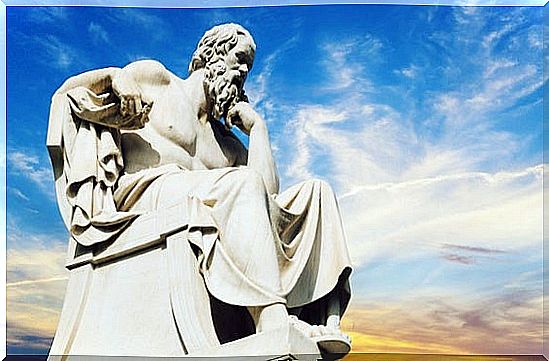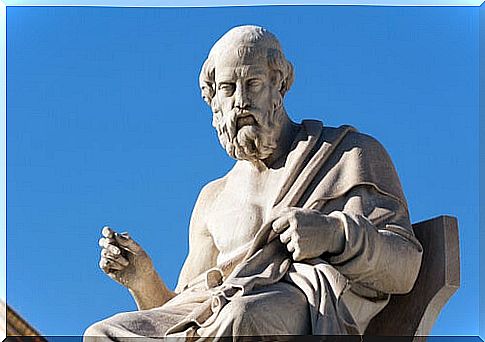Socrates, Biography Of The Father Of Philosophy

Socrates is one of the most famous men that humanity has given. Many think that it was he who gave unity to philosophical activity and that Western thought began to take shape thanks to him. In fact, he is considered the father of philosophy and the greatest of Greek thinkers.
Politics and ethics as areas of thought began with Socrates. He was, above all, a man who liked to question and debate intelligently. He did not take anything for granted and that made him the object of criticism and persecution. Very few tolerated his questions, which always exposed the fragility of the knowledge and arguments of his contemporaries.
Socrates also left a great mark with his method of analysis, dialectics, and for his teaching strategy, maieutics. In both, a thinker is discovered who is not interested in postulating truths, but in scrutinizing the very basis of thought. Many episodes in the philosopher’s life show that he was also someone with a great sense of humor.

The early years of Socrates
Socrates was born in Athens in 470 BC. His father was Sofronisco, whose profession was a stonemason and had participated in the construction of the Parthenon. It is said that when his son was born he consulted the Oracle of Delphi and he advised him to let him grow at his own pace, without opposing his will or repressing his impulses. The mother was Fenáreta, a midwife whom the philosopher considered his mentor.
In the beginning, Socrates dedicated himself to the same profession as his father and is known to have made several statues at the entrance to the Acropolis. He received a normal instruction for someone of his condition at that time, which was the most flourishing of Ancient Greece. Archelaus was the teacher who introduced him to philosophy.
The philosopher was also a citizen-heavy infantryman, during the Peloponnesian War, in which he fought with great courage. Very young he married Xantipa, a woman who became famous for her bad character. On several occasions, the couple’s marital conflicts were discussed, although there is not enough evidence that they had such a difficult relationship as is sometimes believed.
A brilliant and humble man
Socrates’ physical appearance was a source of ridicule, as he was not handsome. Besides, he was terribly austere, for he always wore the same cloak and his table was very meager. He deliberately kept a simple life, but soon began to become notable for his great intelligence. In particular, his questions, always incisive, became famous.
His method, maieutics, consisted precisely in formulating one question after another, so that through the answers a coherent discursive thread was established. His ability to delve into any subject, with great ingenuity, began to make him famous and soon became famous in Athens and many disciples came to his side.
What this philosopher was doing, basically, was questioning “the certainties. ” His followers loved him, precisely because the method of this teacher made them participate in the construction of knowledge and ideas.
His most brilliant student was Plato. In fact, thanks to the latter, a good part of Socratic thought was recovered, since the father of philosophy never wrote.

A historical crime
The philosopher who made everyone doubt everything, was not well seen by those who tried to install absolute truths. Socrates was not well regarded by the powerful.
It is said that a wealthy Athenian wanted to hire him to educate his son; the philosopher asked him for a payment of 500 drachmas, which seemed excessive to the contractor, who said that with that money he could buy a donkey. Socrates advised him to buy it so that he would have two donkeys in the house.
When he was already very famous, he began to look at him with suspicion. He was accused of being a bad influence on the youth and to everyone’s surprise, he did not defend himself with his great dialectical capacity. He thought that the laws and the judges’ rulings had to be complied with, whether he agreed with them or not.
Socrates was sentenced to die of hemlock poisoning. Xantipa, his wife, is said to have visited him and began to cry.
The philosopher asked her why she was lamenting and she replied that it was very sad to see him die from a wrongful conviction. He replied, “Would you feel better if I died for a just sentence?” His death caused great commotion among his followers.









